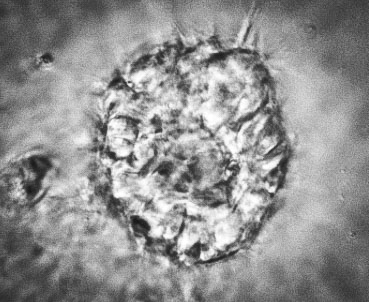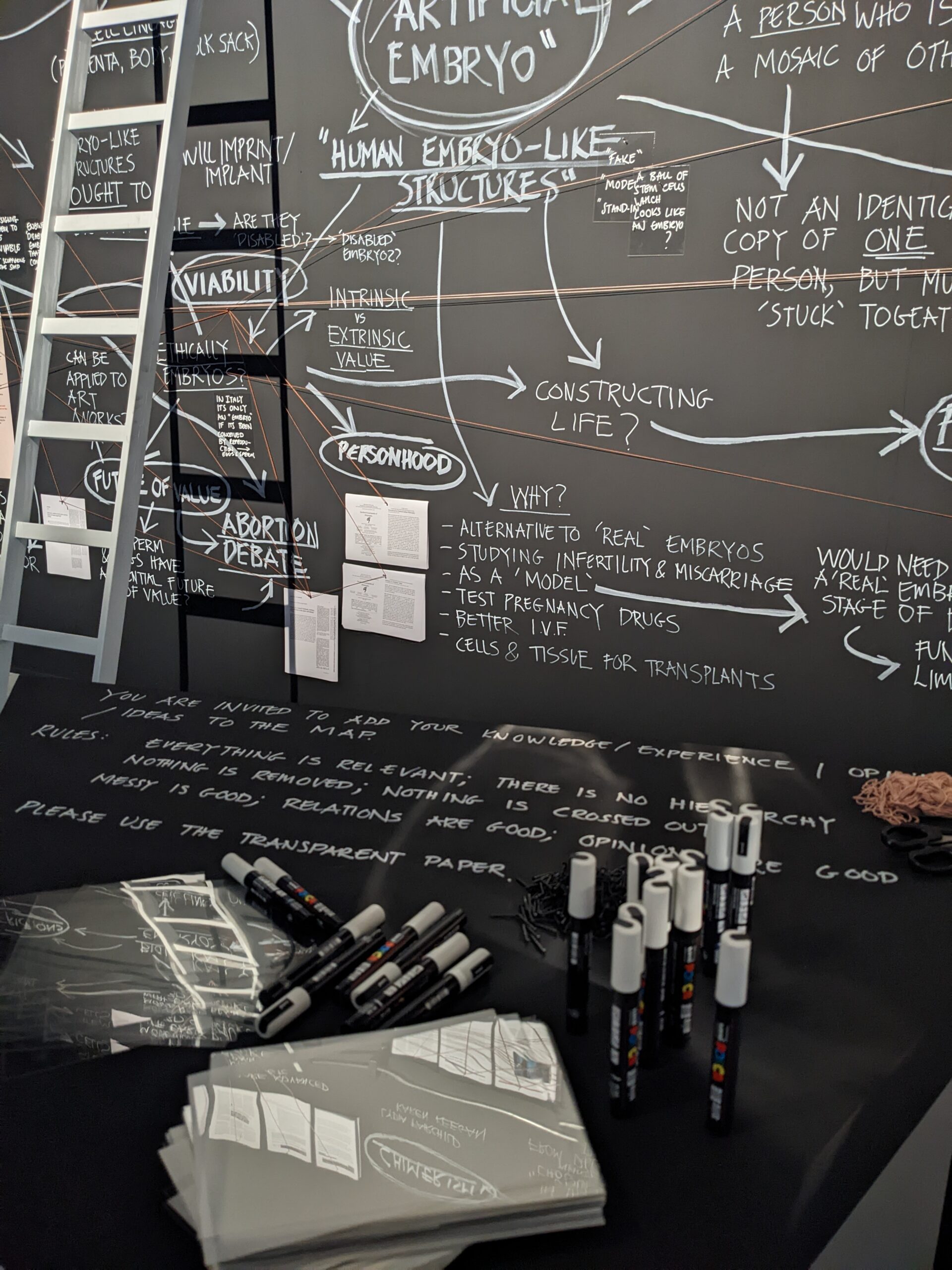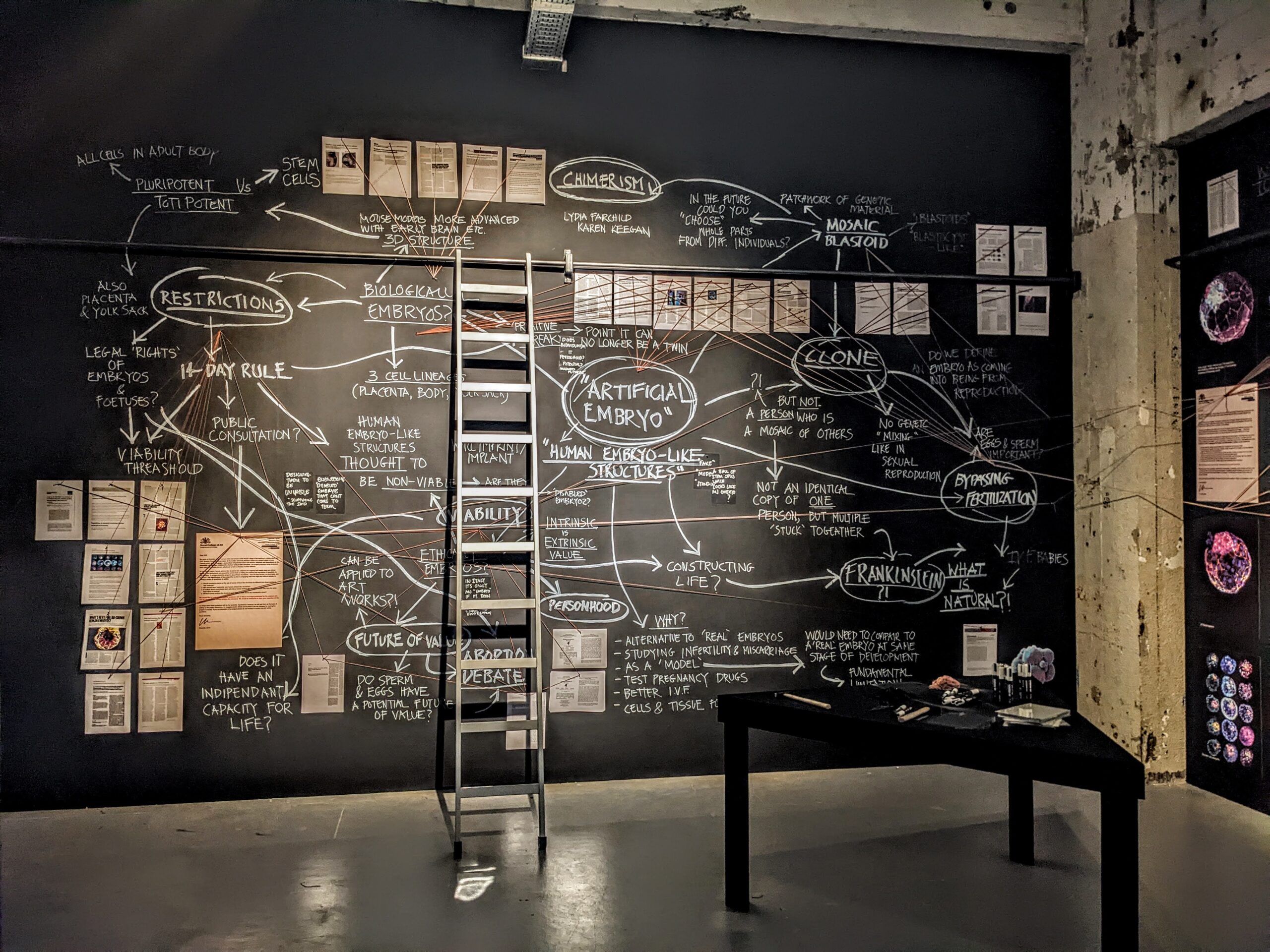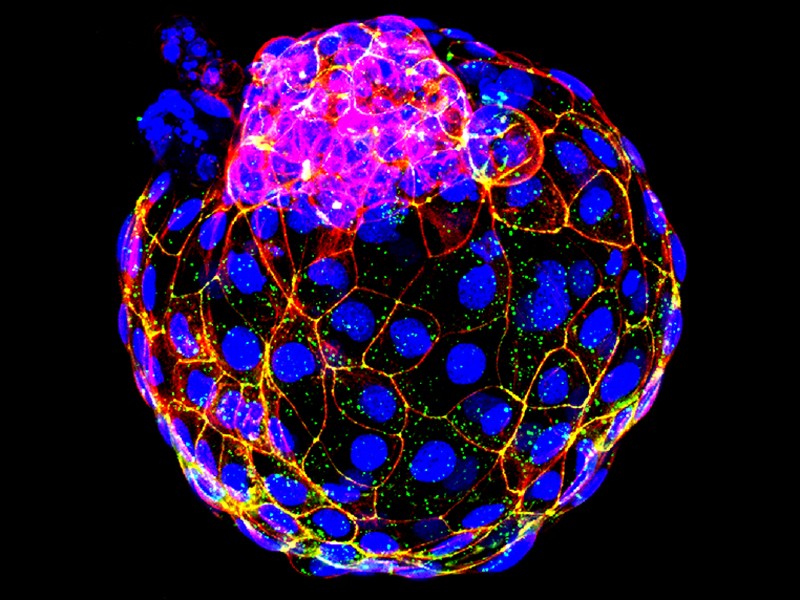Artist Charlotte Jarvis and scientist Prof. Susana Chuva de Sousa Lopes are investigating how new science, technology and ‘artificial’ intelligences will shift our perspectives of reproduction. In Loco Parentis aims to engage a diverse consortium of potential stem cell donors, community groups, ethicists, lawmakers and a specially trained AI on the possibility of using pluripotent stem cells collectively to form a (mosaic) human embryo model – a collaborative artificial embryo model ‘parented’ by a collaboratively trained artificial intelligence.
Artificial embryos share much in common with Artificial Intelligences. They are a crucible for ongoing and volatile legal and ethical debate around the world which is shifting and defining the boundaries of what we consider to be ‘human’ and ‘artificial’. The project is about those boundaries – how are they formed, on what basis, and by whom?
So far, the team has successfully grown artificial embryo models from Charlotte’s stem cells. These are effectively ‘clones’ of Charlotte. The embryo models are ‘non-incorporated’ – they do not have a placenta – and thus purposefully unviable. ‘Unviable’ means that even if they were implanted into a uterus they could never grow into a baby.
In Loco Parentis aims to be what Donna Haraway describes as “split and contradictory”; to interrogate positions and be accountable; to generate “rational conversations and fantastic imaginings that change history.”
In the past I have grown my own cancer, seen my heart beat outside my body and recorded music onto DNA. Most recently I have become interested in feminist appropriation of reproductive technologies. I currently have active projects making ‘female’ sperm, and a collaborative uterus – both of which are completely new science. In this residency, I will be working with a diverse team to make a collaborative artificial embryo parented by an artificial intelligence.
In Technologies of Gender Teresa de Lauretis describes another perspective existing in the “social spaces carved in the interstices of institutions and in the chinks and cracks of the power-knowledge apparati”. Lauretis talks about the need to find a “view from elsewhere” – a different context for dialogue which exists in between paradigms. I believe this can be found at the intersection between art, science, technology and ethics. In Loco Parentis situates itself at that exact crunch point.
Artificial embryos share much in common with Artificial Intelligences. They are a crucible for ongoing and volatile legal and ethical debate around the world which is shifting and defining the boundaries of what we consider to be ‘human’ and ‘artificial’. The project is about those boundaries – how are they formed, on what basis, and by whom?
Paul Preciado: “The very survival of life on earth depends on the invention of cooperative and symbiotic technologies of production and reproduction.”
Charlotte Jarvis
Jury Statement
We are excited to introduce Charlotte Jarvis as our artist in residence at CLICK, presenting the project ‘In Loco Parentis,’ a collaborative artificial embryo ‘parented’ by a collaboratively trained artificial intelligence. The project integrates science, ethics, law, politics, and art with the goal of fostering public discourse on the future of human reproduction.
The Culture Yard
This ongoing project seeks to challenge traditional (patriarchal) parental structures by questioning established power dynamics. It aims to highlight the potential for alternative, collaborative reproductive futures, embracing diversity and queerness.
We view the project as bold, provocative, and relevant to today’s society, particularly considering the rapid advancements in AI technology. We look forward to offering our support and are genuinely excited about the potential outcomes.
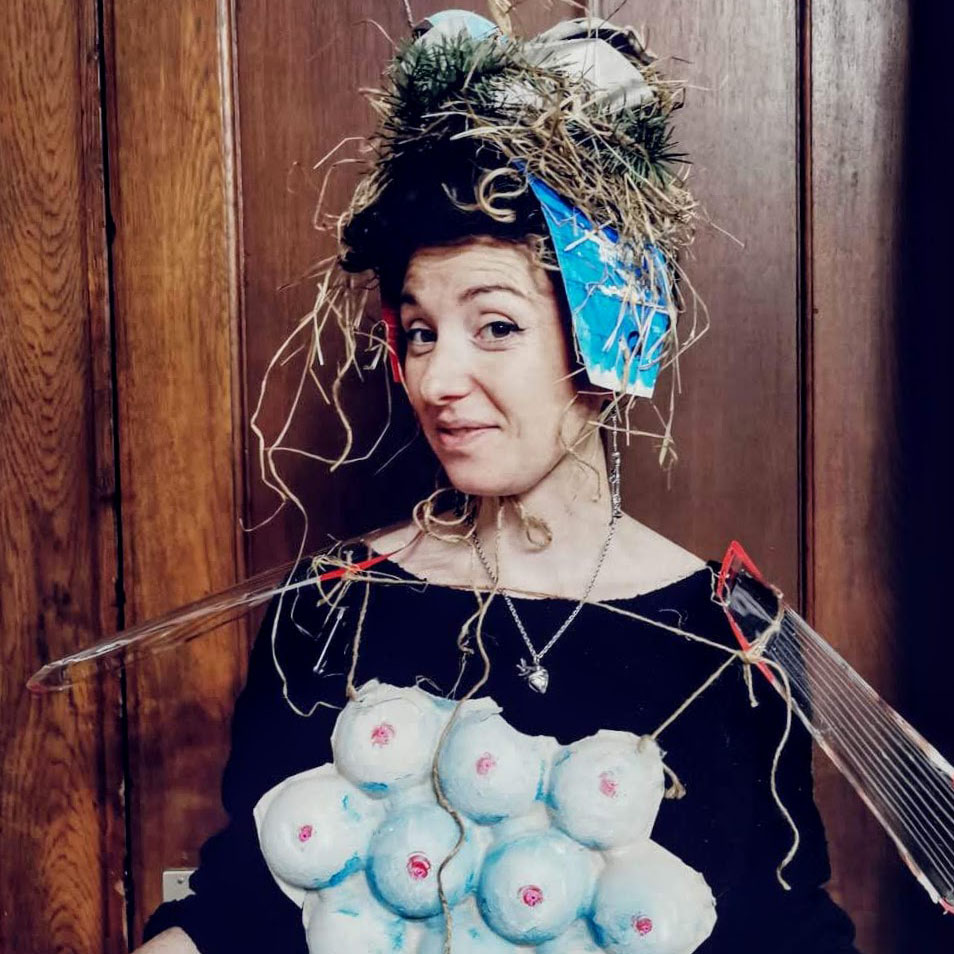
Charlotte Jarvis (UK)
Charlotte works between art and science. She has recorded music onto DNA, seen her heart beat outside of her body and grown her own tumor. Charlotte’s work explores the future of reproduction and the body as a liminal space – a site for transformation, hybridisation and magic. Charlotte is currently engaged in making “female” sperm with scientists in Leiden and a “collaborative uterus” with a team in Argentina. Charlotte has exhibited her work in eleven international solo shows and over one hundred group exhibitions. She currently lectures at The Royal College of Art in London
